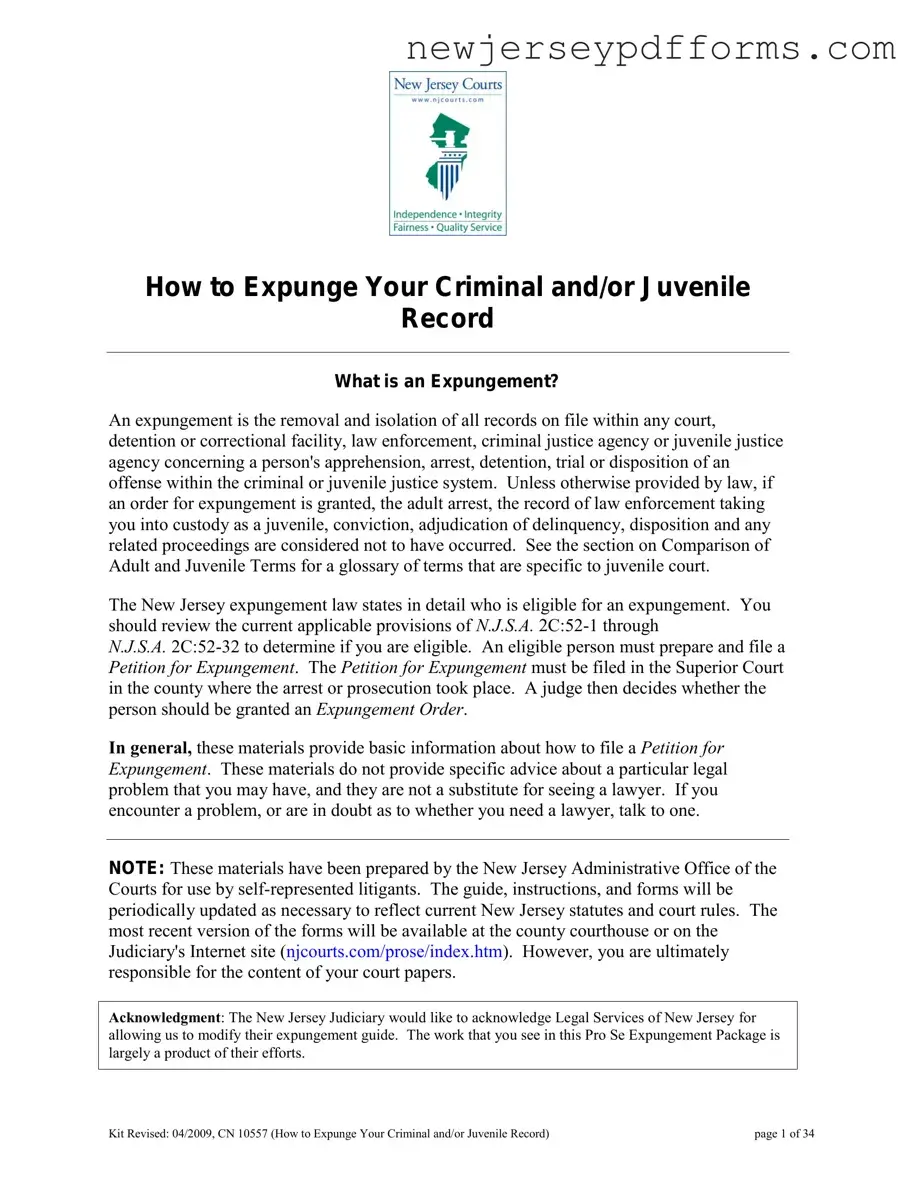What is an expungement?
An expungement is a legal process that removes and isolates all records related to a person's arrest, detention, trial, or other legal proceedings from public view. This means that once an expungement is granted, it is as if the arrest or conviction never occurred. The New Jersey expungement law outlines specific eligibility criteria, which you can find in N.J.S.A. 2C:52-1 through N.J.S.A. 2C:52-32.
Who is eligible for expungement in New Jersey?
Eligibility for expungement varies based on the specifics of your case. Generally, individuals with certain types of convictions, juvenile adjudications, or arrests may qualify. It is essential to review the relevant statutes to determine your eligibility. If you are unsure about your status, consider consulting a legal professional for guidance.
How do I file a Petition for Expungement?
To file a Petition for Expungement, you need to complete the necessary forms and submit them to the Superior Court in the county where your arrest or prosecution occurred. The primary form is the Petition for Expungement, which requires details about your case. You must also include a Verification page, signed in front of a Notary Public, and an Order for Hearing form to schedule your court date.
What information do I need to prepare my expungement petition?
Gathering accurate information is crucial. You will need the date of your arrest or custody, details about the offense, and any related case numbers. If you had legal representation, your attorney might have this information. If not, contact the relevant court or law enforcement agency for assistance in obtaining your records.
What happens after I file my petition?
Once your petition is filed, the court will review it and schedule a hearing, typically within 35 to 60 days. At this hearing, a judge will consider your request for expungement. It is important to attend the hearing and present your case clearly. Be prepared to answer any questions the judge may have.
Can I represent myself in court for an expungement?
Yes, you have the right to represent yourself in court. However, it is advisable to seek legal assistance if possible, as the court process can be complex. If you cannot afford an attorney, you may qualify for free legal services through local legal aid organizations. They can provide valuable support during this process.
What should I do if I encounter problems during the process?
If you face any difficulties while filing your petition or navigating the court system, it is wise to consult with a lawyer. They can provide specific legal advice tailored to your situation. If you cannot afford a lawyer, reach out to your county's legal services program for assistance.
How can I ensure I have all necessary documents for my expungement?
Keep copies of all documents related to your case, including completed forms, receipts, and any correspondence with the court. This will help you stay organized and provide necessary evidence if required. If you are missing any documents, contact the appropriate court or agency to obtain them before filing your petition.

